The World Economic Forum (WEF) observed in a 2020 report that “a new generation of smart machines, fueled by rapid advances in artificial intelligence (AI) and robotics, could potentially replace a large proportion of existing human jobs.”
The advent of artificial intelligence, automation, and robots threatens a plethora of currently existing jobs. Egyptians who work as factory workers, waiters, news reporters, or drivers, for example, are all at risk of losing their occupations in the coming decades.
This isn’t a first, however. There are jobs that used to exist in Egyptian society that may seem outlandish today but made sense in the times of yesterday.
Here are 10 extinct jobs in Egypt that offer that take you back in time to a different era.
Al-Qerdati (Monkey Trainer)
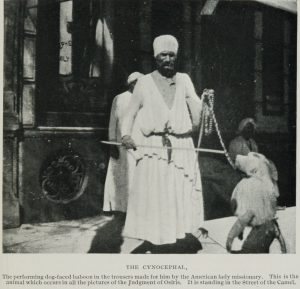
Long before the era of animal rights and conservation, Al-Qerdati was a street job that served as entertainment for passersby. Al-Qerdati roamed the streets of Egypt with his trained monkey gathering people around him to watch the monkey show. By the end of the show, members of the audience would throw money into a hat, often held by the monkey.
Al-Dalala (Peddler)
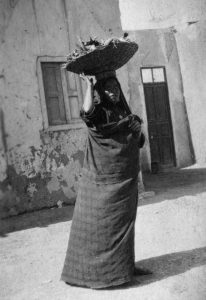
A job that existed in an era where many women were forbidden by their husbands to go out to public markets frequently, Al-Dalala would roam the neighborhoods with a bucket full of products for sale — usually clothes, fragrances, and fabrics. Occasionally, Al-Dalala could also be called upon to act as a visiting nurse for upper-class neighborhoods.
A few traveling salespersons can still be found in modern-day Egypt, in streets and metro stations. But the idea of Al-Dalala itself has long been extinct with the freedom for Egyptian women to roam commercial districts.
Al-Sakka (Water-Seller)
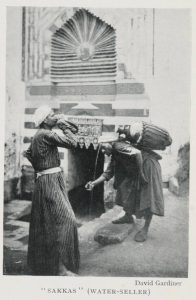
An archaic occupation that was needed for a period of civilization that lacked adequate access to clean water. Al-Sakka was a person responsible for transporting drinkable water from reservoirs or rivers to mosques, schools, homes and public drinking fountains.
Al-Wazan (Weight Scaler)
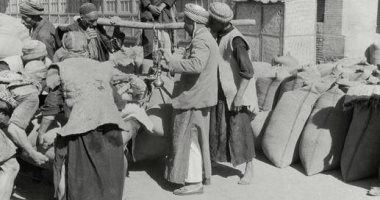
Weighing products was a licensed profession back in the days. Before every produce merchant in Egypt owned a scale, Al-Wazan was the go-to man to weigh the cost. The man would carry a wooden pole on his shoulders, with scales and lifts on each end for the products to be placed. Evidently, the invention of modern weighing devices completely killed the profession.
Al-Merada’a (Wet Nurse)
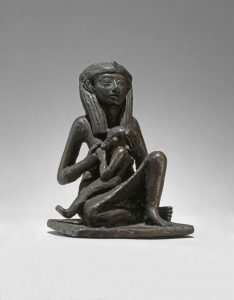
A role that dates as far back as ancient Egypt, Al-Merada’a is a job universally known across all cultures of the world. Al-Merada’a was essential for mothers unable or unwilling to breastfeed their babies. Before the creation of baby formula in the 20th century, this was a job that could save a baby’s life and prevent malnourishment.
In Islam and Christianity, Egypt’s two main religions, it is prohibited for milk-siblings, those who breastfed off the same non-biological woman, to marry one another.
Al-Tarabishi (Fez Maker)
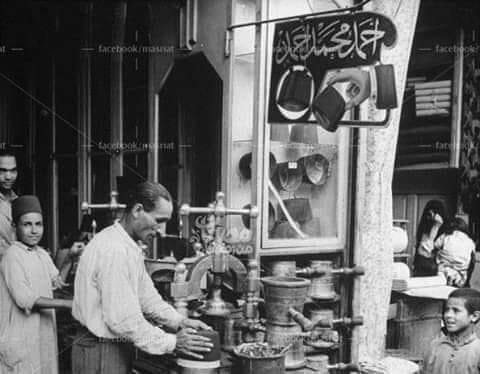
It may exist in niche nooks of Egypt’s bazaars as a touristic gimmick, but the fashion behind it is certainly extinct. Egypt’s relationship with Al-Tarboush (the fez), a bucket-shaped red hat with a tassel, has existed since the rule of Muhammad Ali Pasha. It came into fashion, first, as a part of the traditional Turkish uniform, later becoming mainstream in Egypt. Al-Tarabishi was the designer and creator responsible for selling fezzes to Egyptians.
Mabeed Al-Nahasi (Copper Bleacher)
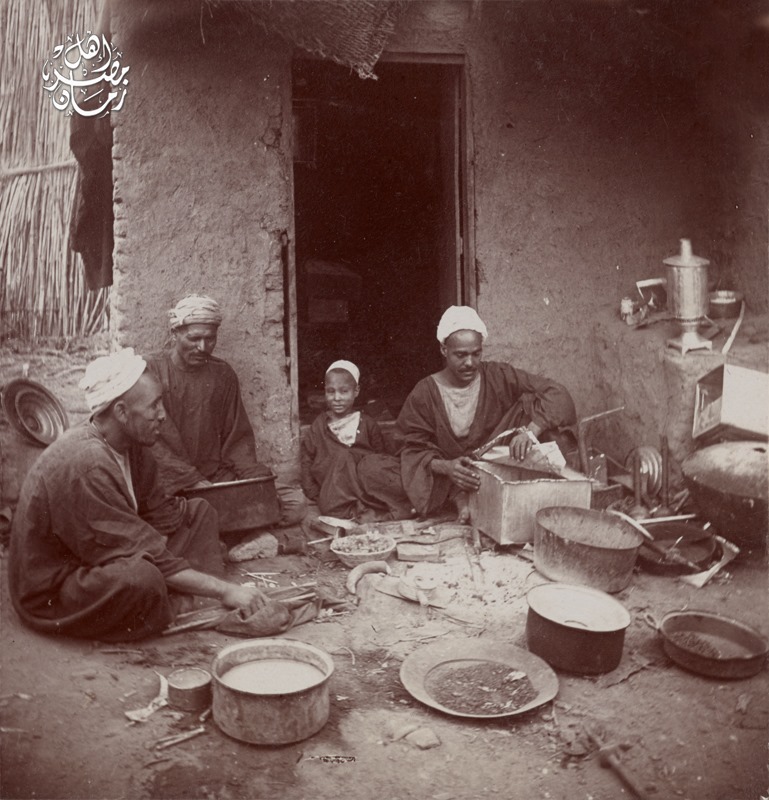
Mabeed Al-Nahasi was relevant at a time when copper was considered a luxurious material to own. Al-Nahas (Copper) was second in terms of value after gold, to the point that families displayed it on mantles and through kitchen utensils.
Al-Nahasi would wander wealthy neighborhoods, calling for housewives to bring any copper collection that needed cleaning from rust or stains.
Al-Hakawati (Storyteller)
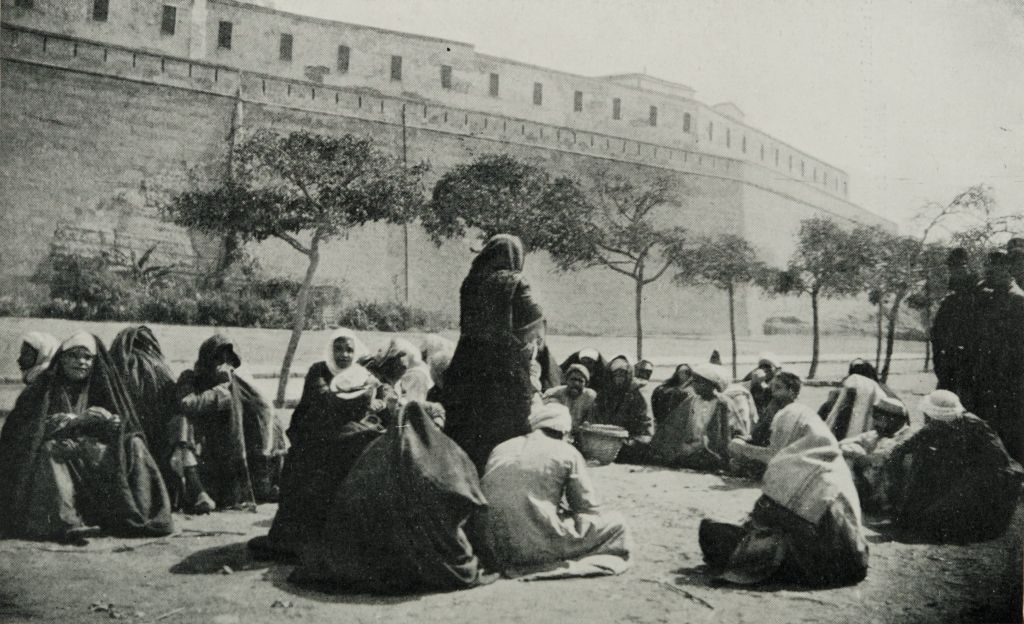
Everyone loves a good story. Al-Hakawati, which stems from the word Hekayat (stories), was a person who narrated the entertaining epics and ballads from Egyptian folklore. More often than not, he could be found in public places, such as Al-Qahwa (cafe). The job required character, eloquence, and good story delivery, to evoke a wide array of emotions from the audience.
Storytelling remains a universally appreciated skill in people, which could be found in more modern jobs like content creators, authors, journalists, and actors.
Al-Fawanisi (The Lantern Lighter)
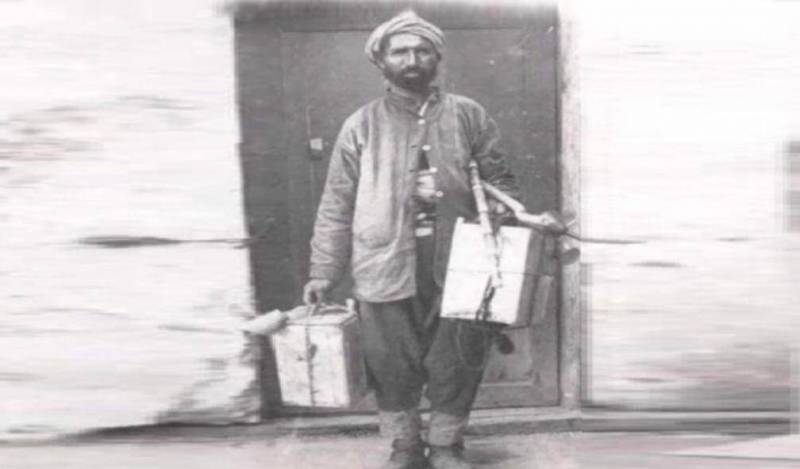
Egypt did not always have electrical grids. There was a time when the streets of Cairo could only be lit up through lanterns. Al-Fawanisi – known as Al-Domari in the Levant and Turkey – was an essential job during pre-electric Egypt. He was responsible for lighting street lanterns before nightfall, ensuring Egypt’s historic nightlife remains illuminated.
Al-Qawas (The Groomer)
For those who have watched Disney’s Aladdin (1992), Al-Qawas is the one that shouts “Make way for Prince Ali!”
Considered one of Egypt’s more reprehensible jobs, this role required Al-Qawas to run ahead of his master’s steed, shouting and cursing people across the street to make way for him. Thus, ensuring a seamless commute for his boss.
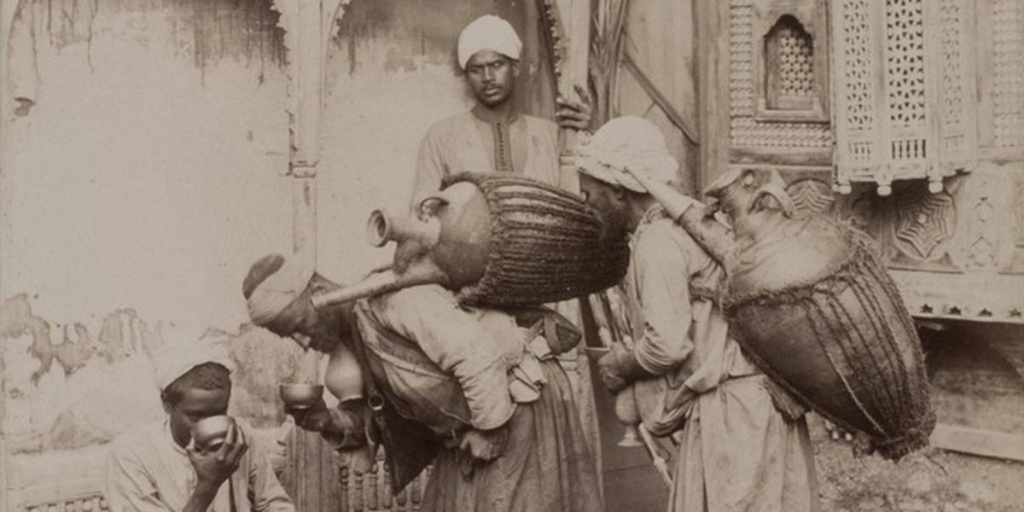



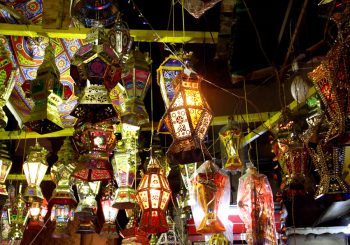
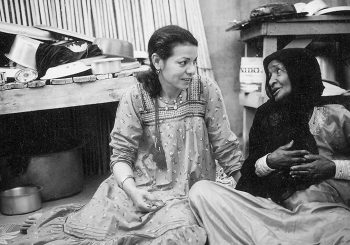

Comment (1)
[…] 10 وظائف منقرضة في مصر تعيدك بالزمن شارك “أليف: حل منهجي لمشكلة حقوق الحيوان في مصر […]